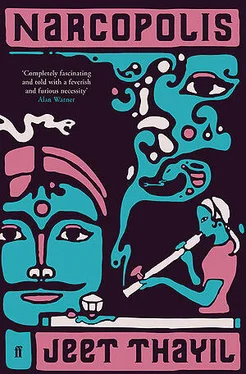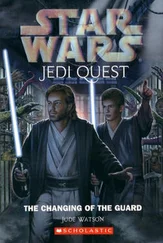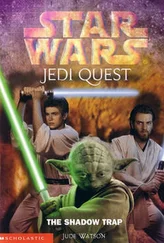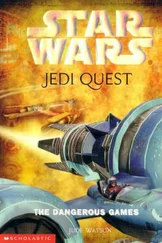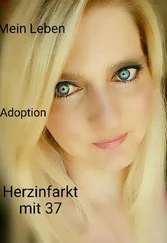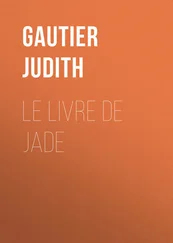Jeet Thayil - Narcopolis
Здесь есть возможность читать онлайн «Jeet Thayil - Narcopolis» весь текст электронной книги совершенно бесплатно (целиком полную версию без сокращений). В некоторых случаях можно слушать аудио, скачать через торрент в формате fb2 и присутствует краткое содержание. Год выпуска: 2012, Издательство: Faber & Faber, Жанр: Современная проза, на итальянском языке. Описание произведения, (предисловие) а так же отзывы посетителей доступны на портале библиотеки ЛибКат.
- Название:Narcopolis
- Автор:
- Издательство:Faber & Faber
- Жанр:
- Год:2012
- ISBN:нет данных
- Рейтинг книги:3 / 5. Голосов: 1
-
Избранное:Добавить в избранное
- Отзывы:
-
Ваша оценка:
- 60
- 1
- 2
- 3
- 4
- 5
Narcopolis: краткое содержание, описание и аннотация
Предлагаем к чтению аннотацию, описание, краткое содержание или предисловие (зависит от того, что написал сам автор книги «Narcopolis»). Если вы не нашли необходимую информацию о книге — напишите в комментариях, мы постараемся отыскать её.
Outside, stray dogs lope in packs. Street vendors hustle. Hookers call for custom through the bars of their cages as their pimps slouch in doorways in the half-light. There is an underworld whisper of a new terror: the Pathar Maar, the stone killer, whose victims are the nameless, invisible poor. There are too many of them to count in this broken city.
Narcopolis
Narcopolis — читать онлайн бесплатно полную книгу (весь текст) целиком
Ниже представлен текст книги, разбитый по страницам. Система сохранения места последней прочитанной страницы, позволяет с удобством читать онлайн бесплатно книгу «Narcopolis», без необходимости каждый раз заново искать на чём Вы остановились. Поставьте закладку, и сможете в любой момент перейти на страницу, на которой закончили чтение.
Интервал:
Закладка:
*
She was learning to live with the pain. It was always there, in her shoulders and her back. The opium reduced it to something manageable, but she woke with pain. And then, taking the pipe one morning from Mr Lee, she realized that her arms were getting longer. She was sure of it, her arms were out of proportion to the rest of her. She went to a real doctor in Colaba. She took a train to Churchgate and a taxi from the station to his office. He was an English-speaking man with a degree from London and a second office in Worli. His room was full of books on glass-fronted shelves. He picked up a heavy black volume with indentations on the pages and after a few minutes of reading he told her that the lengthening of her arms was a biological change brought about by her gelding. He said You were castrated so young there have been hormonal spikes in your physiology. In a way, the growth of your arms is a compensation for the profound change you’ve undergone, perhaps the most profound change a human system can experience short of dying. She thought, I don’t care. As long as my knuckles don’t drag on the floor I don’t care. What does it mean if my arms are longer? It will be easier to make pipes. She thought: This is nothing, just one more of the body changes I have to live with, like the way my Adam’s apple disappeared and my moustache and the veins on my arms. Where did they go? When she asked the doctor, he made no reply. He nodded politely and wrote out a bill. The doctor wore glasses with gold frames and he didn’t actually examine her. He didn’t touch her at all, not even to shake hands, as if he knew her, knew where she lived and what she did for a living and the exact amount of opium she took on a daily basis, and even if he made no moral judgment about her life, he had made a medical or personal judgment, which he had every right to. He didn’t touch her but he washed his hands with soap at a sink near his desk. He was like a bhai on Shuklaji Street: he did not handle money or maal. He didn’t get his hands dirty until he had to. He gave her a note and asked her to take it to the front desk. She paid the elderly woman in the outer room, paid in cash, paid more for fifteen minutes of the man’s time than she earned in an entire night. She thought: All he did was look in a book. I wonder how much he would charge to touch me.
*
Mr Lee’s khana existed outside the street’s usual lines of supply and demand. It was Mistah Lee’s, or Mister Ree’s, a place of fable, the Chinese den with the antique pipes where customers were unwelcome. Wooden cots were stacked like bunk beds, each cot with a pipe, each pipe on a tray. Smokers tended to their own pyalis. The door was always closed and because there were few customers the police didn’t bother asking for chai-paani bribe money. Two or three middle-aged Chinese men arrived around noon, smoked their quotas and left without saying much. Mr Lee wasn’t interested in more custom. There was enough money to keep himself in opium and food — plenty of one and just enough of the other — and that was as much business as he wanted. When he and Dimple were alone, he liked to open up his battered tin trunks and show her relics from his old life. There was an English identity card in an envelope of documents. The image was creased and faded but the lettering was still legible. She read his name slowly; she was teaching herself to read English.
‘Lee ka see.’
‘No,’ he said. ‘Lee Ka Tsay.’
She read aloud his birth year, 1929, and province, Canton. He’d been an officer in the army.
‘Wrong army,’ he told her. ‘I on wrong side in war. You know why? Because we lose. If you lose, you wrong.’
*
She wanted to know what it was like to lose a war and a homeland at one stroke and to travel for a long time and arrive in a place where no one knew you. He told her it was like dying or being paralysed, a catastrophic occurrence that no one was equipped to deal with, however strong or well trained they were. She said she liked the city because it was big and there were many strangers who became friends. She said he was lucky to start again somewhere new. He made a gesture with his shoulders, a tiny gesture that told her the precise extent of his unluckiness. And she understood that while his memories of home had softened with time, everything he told her of India was sharp with dislike. He said, Here everything too fast, too loud, too crazy. Indians don’t care for past, only care for now. They too busy thinking of food to think of tomorrow. So? You do what you want do. Dare to dream. Dare to dream. You have to turning round like snowball otherwise you don’t become big. He had to explain to her what a snowball was.
There was a uniform in the trunk and she asked him to put it on. It had high collars and narrow epaulettes and insignia on the breast; it suited him, and the peaked cap transformed him. He filled out, as if he’d grown younger and taller. She saw the markings on the uniform and she understood that he’d been an important man. Go out in that and the girls will pay you, she said. His smile was shy, a small shy flicker, like the ghost of a smile that had occurred a long time ago.
*
It took him a while to work up to it, to ask the questions she’d been asked many times: How did they do it? And: how much did it hurt? Her reply was casually made, as if she were talking about a haircut or a school outing. It affected Lee more than if she’d wept or cursed. When you’re cut young you become a woman quicker, she told him, and since she had not yet been ten, they did both at one go. With older boys, they removed only the testicles. Gelding. They used the English word. In her case: gelding and docking.
‘I was nine or I might have been eight,’ Dimple said. ‘It was about a year after I came to Bombay, to the hijra’s brothel. A woman was called, a famous daima, Shantibai. There was singing and dancing and whisky. The daima told me to chant the goddess’s name and she gave me a red sari. She made me drink whisky. I hated the taste but I drank it. They gave me opium. Then four of them held me down. They used a piece of split bamboo on my penis and testicles and held me down. The bamboo was so tight I felt nothing, until afterwards, when they poured hot oil on my wound. That was when I felt the pain, and more, something strange, I was sure the pain would set me free. It burned when they poured the oil, but it was a good thing, it meant the bleeding would stop.’
‘They not take you to doctor?’
‘I could have asked for a doctor, but nobody respects the doctor nirvan. You get anaesthesia and medicine. You’re not risking your life.’
Lee asked more questions.
‘My mother brought me here to 007 and gave me to the tai. I was seven or eight. I don’t remember much about her or my life before I came. I don’t want to remember.’
‘Best. Forget is best.’
‘Why remember and make yourself sad?’
‘Why remember when anyway you memory wrong, all wrong.’
‘Yes, yes, best to forget.’
‘What I said.’
*
He took her to Chowpatty for milkshakes at Rajasthan Lassi or a pista kulfi at Cream Center and a sandwich on the beach. It was December, the time of year he liked best. He said, This Bombay? Only nice two month of year, December and January, rest of time it no place for human being. To clinch the argument he nodded at the scene around them. It was a weekday but the beach was crowded: men ambled aimlessly and stray dogs lay curled under the trees. Here and there lamps burned where vendors sold peanuts, sugared tamarind and coconut-oil head massages. A small boy lay buried in the sand. Only his hands and head were visible. Beside him was a handkerchief with a pitiful collection of coins. The boy’s eyes were closed and he was muttering. Mr Lee planted his walking stick in the sand and watched the lights on the near horizon, a wavy line smudged silver and blue, strung with spray. There was a yellow moon in the sky, like the half-shut eye of a giant bird of prey, and there were no stars to be seen, not a single one, not anywhere. Where have the stars gone, he thought. How will the ships navigate without stars? And then he remembered that the stars were dead, long dead, and the light they shed was not to be trusted, was false, if not an outright lie, and in any case was inadequate, unequal to its task, which was to illuminate the evil that men did. He thought he saw a junk that was at least a hundred yards long, with nine masts and immense sails and attended by a flotilla of smaller boats — supply ships, water tankers, transports for cavalry horses, and fast-moving patrol boats. He knew the junk and its master. In the dusk the big ship’s lights on the water were violet on violet and he thought if he waited long enough one of the small boats would come to fetch him. The ship was a long way from home but seemed in good shape, sitting solidly in the water, so close he could see the rigging. It is the eunuch admiral Zheng He, he told Dimple, the great Chinese Muslim navigator, and he’s come to take me home. Then he heard drums, jungle drums, and he thought of witch doctors and the image of the great junk faded to violet mist. He heard the sound of surf and he heard someone speaking or cursing in Hindi. Your mother’s cunt, the voice said. Or the voice was saying someone’s name, Marky Chu. Lee told Dimple he was sick. He had a grating in his throat and he didn’t want to go to a hospital because there was no point, he knew what it was. He said he needed opium for its pain-killing properties, just as she did. He had a list of aches and pains. It was a bond between them, the itemizing of pain. In pain, he said, as if it were a country. As if he were saying, I am in Spain.
Читать дальшеИнтервал:
Закладка:
Похожие книги на «Narcopolis»
Представляем Вашему вниманию похожие книги на «Narcopolis» списком для выбора. Мы отобрали схожую по названию и смыслу литературу в надежде предоставить читателям больше вариантов отыскать новые, интересные, ещё непрочитанные произведения.
Обсуждение, отзывы о книге «Narcopolis» и просто собственные мнения читателей. Оставьте ваши комментарии, напишите, что Вы думаете о произведении, его смысле или главных героях. Укажите что конкретно понравилось, а что нет, и почему Вы так считаете.
